Cloud applications have gone from being a productive way to provide anywhere access to becoming a business necessity in a world where remote workers are vital to keeping operations going when business-as-usual is interrupted.
Cloud services like Microsoft 365, G Suite, and others are now where many companies station their business workflows. This means their data is also more often stored in the cloud than in on-premises equipment.
Hackers have taken notice, and the latest Verizon Data Breach Investigations Report shows that they are going after those cloud application passwords with a vengeance.
Password dumpers have now become the #1 form of malware used in data breaches. In phishing attacks, login credentials have become the information most sought after.
How can you use the cloud effectively to keep your business data available to all your workers, no matter location, and ensure it is safe? We have several tips below for good cloud security.
Tips for Cloud Security Best Practices for Chicago Businesses
Safe use of cloud solutions requires a strategic approach. You can’t just rely on the cloud provider to keep your data safe, especially when hackers are trying their hardest to steal legitimate user credentials that will give them an all-access pass to your account.
Here are some good cloud security practices to keep your business data protected.
Require the Use of Strong Passwords
Compromised passwords are responsible for 81% of hacking related data breaches.
Users often adopt bad password habits because of all the different passwords they have to use. These risky habits include:
- Reusing passwords across work and personal accounts
- Using weak passwords
- Storing passwords in unsecure place, like a spreadsheet
- Sharing passwords with vendors and colleagues
It’s important to set up cloud platforms, such as Microsoft 365, to require the use of strong passwords and reject passwords that don’t meet certain criteria. This should include length requirements and the need to use at least one number and one symbol.
Use Multi-Factor Authentication (MFA)
Adding a second factor to your logins using MFA can stop 99.9% of attempted account hacks, greatly increasing the security of your cloud accounts.
MFA simply involves having a secondary step added to login where the user is sent a time-sensitive code to a pre-approved device. That code then has to be entered to complete the login. This step keeps hackers out even if they’ve compromised the password.
Keep Account Access Monitored
Hackers may not make themselves immediately known, stealing data “under the radar” after they’ve managed to get into your cloud account. One way to detect this type of compromise is to monitor cloud account access.
Tools like cloud application security brokers and endpoint device managers can help you keep tabs on access patterns to your cloud solutions. This allows you to catch any suspicious activity, like large file downloads, when they happen.
Turn on Account Alerts
Another way to monitor who is logging into your cloud accounts is to turn on account alerts. Many of the major cloud services will have these available in the security settings.
Account alerts can let you know things like:
- When someone logs in from a new location
- When a file is overwritten
- When a file or folder is deleted
- When a new file sharing link has been created
Close Out Old Employee Accounts Promptly
Some businesses will leave old employee accounts open for a while after the employee has left. They want to make sure they don’t lose any data or may just get busy and keep putting off closing it until “later.”
Leaving old accounts open leaves your account at risk. Here are the steps you should take once an employee leaves to secure your account and data:
- Immediately change the account password
- Transfer ownership of all the data in an account to another user
- Deactivate and delete the account
Use Endpoint Device Protection
Many users stay logged into their cloud accounts because it’s easier than continually logging in and out. They also want to make sure they receive important account alerts.
But when a mobile device that’s logged into your company cloud accounts is lost or stolen, that means a stranger has a free pass to get in and do whatever they like.
Endpoint device protection allows you to manage all your endpoints remotely (mobile devices and computers). One of the important safeguards this provides your accounts, is that you can revoke access remotely at anytime from a device. Devices can also be locked and wiped remotely, reducing the risk that a thief will be able to access your company accounts and information.
Do You Have Proper Cloud Security In Place?
With businesses so reliant on the cloud, it’s vital that you pay attention to cloud security. ProdigyTeks can help your Chicago business put the safeguards in place that you need.
Schedule a free phone consultation today! Call 312-600-8357 or reach us online.



Leave a Reply